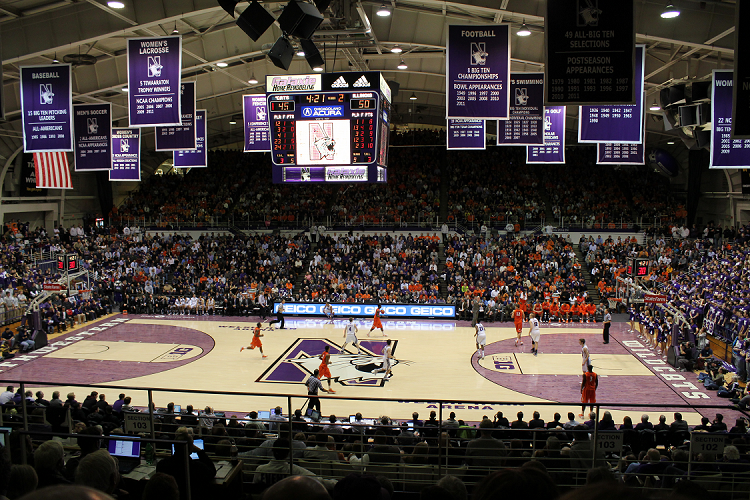Northwestern University football players will vote April 25 whether to unionize after the National Labor Relations Board ruled in March that players are employees of the school and have the right to form unions.
Northwestern is appealing the decision.
The Northwestern players are represented by the College Athletes Players Association, which is pushing for collective bargaining to enable the athletes to receive long-term medical coverage, increase scholarships, allow them to profit for use of their likeness, provide due process rights in disciplinary situations and allow them to get paid by their school as employees.
Jay Martin, OWU head coach of soccer said the decision on the Northwestern union case could affect college sports across all three divisions once the precedent is set.
“I think it’s good for student athletes to have a voice at the table,” Martin said.
“My concern is that and subsequent things will harm programs more than help them.”
He said Division I schools could probably afford to pay student athletes as employees but then programs might have to be cut.
“What you could see is top student athletes from Division I programs start to consider Division II or III schools where less time is committed to athletics,” Martin said.
“On the other hand, if programs are deleted, you could see the same result.”
Martin also said there is an “unintended consequences joke” in sports that every time Division I messes up, it passes the role to Division III.
“Nothing happens that doesn’t have some sort of effect on us,” Martin said.
“This could lead to a change in the dynamics of college sports. In Europe, for example, sports operate as local clubs. Depending on how this goes, ten years down the road, in some sports that could be a possibility.”
Tom Watts, head football coach, said student athletes should have a voice but the idea to unionize is unnecessary.
He also said OWU sports teams could not be affected no matter the outcome because it is a Division III college.
“I do not think this will affect D3 sports, because we are not creating revenue that D1 sports do,” Watts said.
Martin also said he understands why the Northwestern players are pushing for a union.
He said athletics are time consuming, with Division I athletes putting up to 60 hours into sports on-season and Division III putting at least 12 hours in a week in order to receive credit.
“Ten years ago student athletes weren’t allowed to get jobs. So they had virtually zero spending money and couldn’t go out like the other kids,” he said.
However, he does not think OWU’s student athletes give up more time than any other programs on campus.
“In that respect, I look at athletics as being no different from other disciplines.
“Our theatre department spends just as much if not more hours outside of the classroom than us,” Martin said.
Martin said there is also no difference at Division III schools with potential scholarship money awarded for non-academic related programs.
“We’re not allowed to have athletic experience as part of the financial aid package here,” Martin said.
“Athletic coaches aren’t even supposed to walk into financial aid offices, so to speak.”
